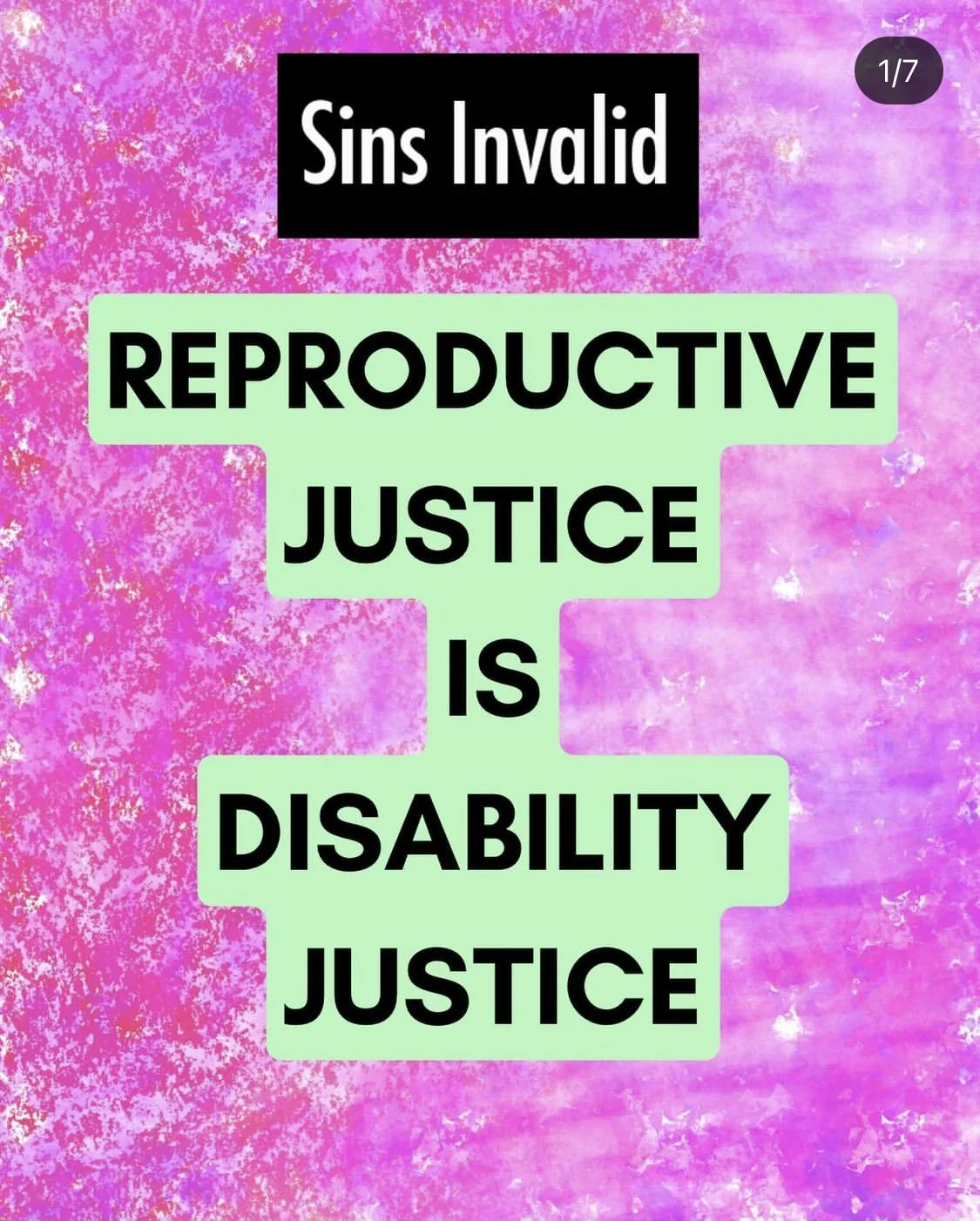The Nuanceletter: July Edition
What you need to know
Reproductive Rights are a Disability Justice Issue
TL;DR:
What’s going on?
On June 24, 2022 the Supreme Court overturned precedent for 50 years and rolled back human rights for all people with uteruses with the overturning of Roe v. Wade. Since this ruling an understandable overwhelming amount of stories have come forward from both sides really pushing for what they believe is right, but both sides are saturated in ableism.
The fear of disability has been used to motivate termination of pregnancies for years, and most parents who receive a diagnosis of disability for their child are terrified. Many disabled people, myself included, have stories passed down from us of doctors saying “they’ll never walk / drive / write / talk / read / be independent” so parents are understandably scared and worried about their child’s life.
These sentiments from their doctors are from the Medical Model of disability which is a model of viewing disability that disability is something that needs to be cured in order for a person to have a fulfilled and happy life. This model is rejected viewpoint by most disabled activists because it implies that everyone can be - or should be - cured of their disability. There are many individuals who will never be able to be cured of their disabilities for a number of reasons and this mindset prohibits the responsibility of advancement from being on the shoulders of society to make the world a more accessible space.
Why is this a disability issue?
Disabled people are 7x more likely to experience sexual assault than non disabled people and the Bureau of Justice reports that only 3% of sexual abuses involving people with developmental disabilities are ever reported. This is largely due to infantalization of disabled people and the lack of belief that non disabled adults have when disabled people report crimes against them, as well as conservatorships that strip disabled people of their autonomy. Studies show that 5 out of 6 sexual assault instances against disabled people are done by people in their trusted circle of caretakers which you guessed it - means that 5 out of 6 times those people can force their victims either to terminate a pregnancy or keep it.
Disabled people also have 11x higher maternal death rate than non disabled people and that number often compounds for BIPOC individuals who have to endure medical racism on top of medical ableism, lack of resources to adequate reproductive health care and
As I went about preparing for this nuanceletter - and life as a disabled Minnesotan in light of a new era of abortion rights I called around and asked which abortion funds had accessibility plans for disabled people and NOBODY had one. It is not a matter of if disabled people will need abortions, but when, and disabled people need to be included in this advocacy work.
Something to learn.
Let’s talk about the large nuanced factors that make reproductive rights a disability rights issue.
Something to do.
Currently disabled people are not being prioritized as funds and clinics set up to navigate this post Roe world and this is unacceptable. Abortion rights are human rights and disabled people do need access to abortion.
Use the two links below to send emails to your local abortion funds clinics. The first button is a script you can use, and the second one is a list of all of your local funds based on zip code.
Something to share.
Click on the following images to interact with and share their content on abortion rights with your community.
Something to say.
Sometimes the hardest part about learning stuff like this when others don’t, is not knowing what to say when people say ableist comments around us. We’ve created some kind but firm rebuttals for you to use.
-
Taking away reproductive rights and forcing birth is not the best way to advocate for disabled children.
If we want better outcomes for pregnancies with disabled fetuses we need to de-stigmatize health care, fight stigmas around disability and have education for prospective parents, have access to abortion for those who won’t be able to care for the needs of their disabled child, and provide for the rights of disabled children and adults once they are born. -
Yes abortion should be legal, but having a disability isn’t tragic. That kind of language actually feeds Republican talking points AND makes life really hard for disabled people who fight to redefine disability as something that isn’t tragic.
No doubt navigating the world with a disability IS a challenge - but it’s a challenge because of systemic ableism, not because disability is a bad thing. Disability can happen at ANY point of life so it’s important to make sure the world is accessible for all people.



